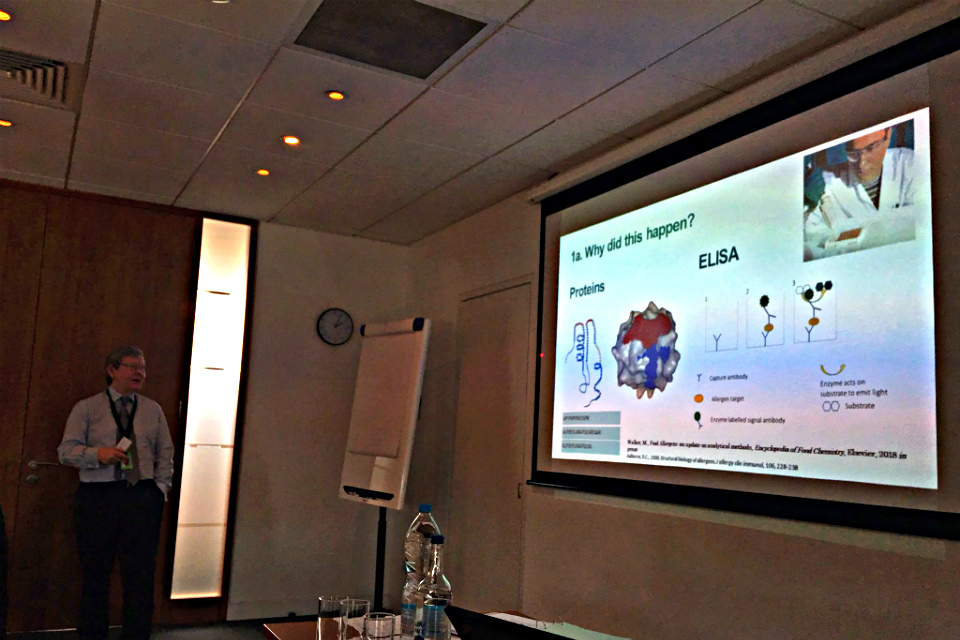Thank you very much for inviting me along to this launch event today. Firstly can thank the team at Centre for Social Justice for this insightful report. It not only raises a number of pertinent points about the challenges which female offenders, and the services responding to them face, but also outlines practical and creative proposals we can take to tackle them.
Secondly, I would like to emphasise an important theme that runs throughout this report: the need for a multi-agency, gender-responsive approach to female offenders that brings together local and national partners in a coordinated and accountable manner.
Female offenders are some of our most vulnerable members of society and often have complex needs. As articulated in the report, a significant number of these women have histories of mental health issues, substance misuse, trauma and abuse, homelessness, poor education and unemployment.
For many, these issues have developed prior to their involvement with the criminal justice system. Many of these women are also likely to be already known to, or already engaged with, different public services before they even commit a crime.
Despite this, we know that outcomes for a significant number of women remain persistently and unacceptably poor.
We must address these issues at the outset if we want to reduce crime, reduce reoffending, protect victims and the public.
Achieving this requires a joined-up approach from the relevant Government departments, national and local statutory services, and the voluntary sector, to develop a coordinated, multi-agency response. I’m pleased to say we are making some real progress in achieving this. And, this is a principle that also underlines my female offender strategy.
Whole System Approach and women’s centres
As set out in the report, we are investing £1 million pounds seed funding to support local areas to develop new ways of working with female offenders by adopting a multi-agency – often termed Whole System – approach.
The whole system model brings together local agencies, criminal justice, statutory and voluntary. Together they provide the holistic, targeted support a female offender needs, with shared investment and outcomes. The National Probation Service and Community Rehabilitation Companies are key partners, ensuring that female offenders receive targeted, wrap-around support both through the gate and in the community.
Women’s centres are often at the heart of many of these Whole-System Approach models. And I have been impressed by the women’s centres that I have visited. Over the past year I met staff and service users at Nelson
Trust and Anawim, which are both providing valuable support to vulnerable women.
I recognise the hugely important role that these women’s centres can play in supporting female offenders and those at risk of offending. Our best response to female offending must be one that is locally-led.
Liaison and diversion
Another recent success commended in the report is that of Liaison and Diversion (L&D) services. L&D services place clinical staff at police stations and courts to provide assessments and referrals at an earlier stage. In doing so, we can intervene early to support people with mental health, drug and alcohol issues as soon as they come to the attention of the criminal justice system.
L&D services will be operating across 82% of England by the end of March 2018, and across 90% of the country by the end of March 2019. Full rollout is expected by 2020/21.
And we are going further. NHS England are currently enhancing ‘women’s pathways’ across all L&D services, to address the specific needs of women in the criminal justice system.
A specific women’s lead will be appointed in each service to focus on this. Services will:
- offer to see all females who come into custody
- provide females with the choice of the gender of their practitioner
- offer gender-sensitive tools for screening
- and provide effective onward referrals to gender specific and sensitive services.
T
he needs of particular groups such as women sex workers and foreign national women, will also be considered. These pathways will be co-designed with women with lived experience.
This will mean that more female offenders will be diverted away from the criminal justice system in the first place, away from charge, or to a community sentence. I firmly believe that early intervention is an important part of our response to female offending. Not only does it improve outcomes for these women but also their children, their families and the public as a whole.
Devolution
As the report outlines, Police & Crime Commissioners (PPC’S) have a real appetite to be more involved in a new approach for female offenders.
This is extremely welcome. PCCs play a valuable role as visible and accountable leaders of the local police and crime systems. And Combined Authorities bring together several services which are crucial to reduce reoffending.
I recognise the potential benefits that a more locally-led system offers. I am keen to work closely with PCCs and Combined Authorities to explore this further.
It is crucial that we work more closely with these local partners to tackle the issues leading women into the criminal justice system.
To deliver this, we have signed devolution agreements with several areas, including Greater Manchester, Liverpool City Region, West Midlands and Greater London.
The Ministry of Justice is committed to exploring options to provide greater devolution of criminal justice responsibility and budgets to local commissioners.
Women at court
Another issue raised in the report was that of awareness of pre-sentence report writers of the disposals available in their areas. We have recently undertaken an audit of pre-sentence reports and assessment tools for female offenders at court. This looked at how we could take a more gender responsive and trauma informed approach towards the women we are working with.
Cross-departmental work is now progressing to increase the quality of assessments for female offenders and a work plan has been developed to take this work forward.
This work is also looking to increase the take up of effective community sentences in line with sentencing guidelines. This work is being carried out in partnership with the National Probation Service and Community Rehabilitation Companies (CRC’s).
Workforce development
However, for these changes to have the necessary impact, it is essential that we have a gender informed workforce.
We continue to roll out Trauma Informed training to criminal justice professionals. Training is now being extended across the National Probation Service and CRCs, as well as to prison staff.
We have also supported the wider Criminal Justice System roll out of the ‘Safeguarding Children When Sentencing Mothers’ training material completed by Dr Shona Minson.
This training raises awareness of the diverse implications of maternal imprisonment for children.
I would like to reiterate my thanks to Dr Minson for her invaluable work.
Benefits and employment
Today’s report also rightly highlights the challenges which prisoners face when leaving prison, particularly around access to welfare support.
Prisoners are able to speak to a Department of Work and Pensions Work Coach before release. They can make an appointment at the relevant Job Centre as early as the day of release. Once the former prisoner attends the Job Centre to complete their claim, eligible prisoners can receive funds within hours.
However, we recognise that more can be done. That is why we are working with the Department of Work and Pensions to improve the process with the aim of enabling a claim in advance of release.
And I want to do more to help women into employment on release too. Getting and keeping a job can change people’s lives and work is the best route out of crime. The prison and probation service have an important role to help offenders build the skills and experience they need whilst they’re in prison so they can have the right attitude for work and get a job when they’re released. As the Secretary of State outlined on 6 March, we will shortly be launching our Education and Employment Strategy. This will set out our approach to helping offenders get the skills they need to find a job and avoid the activities that landed them in prison in the first place.
Accommodation
Another factor that plays an important part in rehabilitation is accommodation. There is considerable evidence which tells us there is a link between lack of stable accommodation and reoffending. Suitable accommodation plays an important part in enabling offenders to get a job, into training, or registered with a GP.
HMPPS has undertaken some initiatives to improve access to accommodation, such as expanding the BASS contract to offer accommodation to offenders on licence.
We continue to work with all probation providers to help make sure offenders get the support they need to find accommodation on release.
But accommodation is a serious problem which requires a cross departmental response, as recognised in the report’s recommendations.
We are working with Ministry of Housing, Communities and Local Government to improve access to housing for those being released from prison.
As part of this, we are investigating how Housing First and proposals regarding the private rented sector could help to ensure that offenders with complex needs, including female offenders, can secure suitable accommodation
This work will form part of the wider Government commitment to eliminate homelessness.
Conclusion
As you know, my female offender strategy is due shortly. I hope to outline in this what further progress we have made in the areas I have highlighted today, and others, to address the challenges which female offenders face. This is a complex issue and one that I want to get right.
Thank you for having me here today to support the launch of this report.


